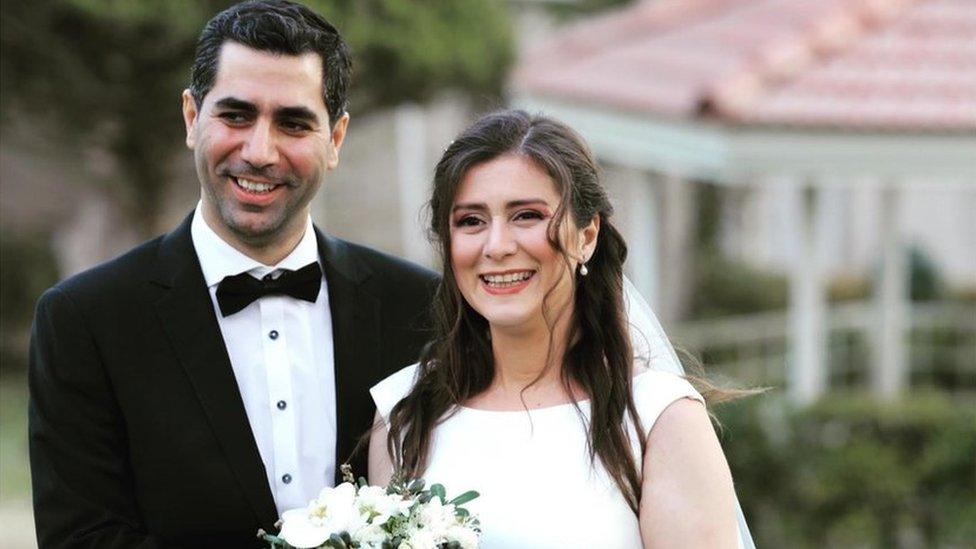Canadian report slams 'reckless' Iran for downing of flight PS752
- Published

The downing of flight PS752 in January 2020 took the lives of all 176 people on board, including 138 people with ties to Canada
A Canadian government report on the downing of a Ukrainian jet has found no evidence it was "premeditated", but said Iran was "fully responsible".
Ukraine International Airlines flight PS752 was hit by two missiles after taking off from Tehran on 8 January 2020. All 176 people on board died.
Iran - which was accused of hampering independent inquiries - has said it mistook the aircraft for a US missile.
Some 138 of those on board the doomed plane had ties to Canada.
Citizens or residents of four other countries - Ukraine, the UK, Afghanistan and Sweden - were also killed.
Canada said on Thursday, external that the blame lay with Iran's "civilian and military authorities".
While acknowledging that an air defence unit operator "likely acted on his own in making the decision to launch the missiles", an eight-month forensic investigation concluded that it would not have happened if not for the "incompetence, recklessness, and wanton disregard for human life" of Iranian officials.
"Iran does not get off the hook in any way whatsoever," said Canadian Foreign Minister Marc Garneau at a news conference on Thursday. "It is totally responsible for what happened."
The probe found that Iranian anti-aircraft missiles were on high alert, yet authorities did not close its airspace or notify airlines in operation at the time.
Mr Garneau said that a missile operator made "a series of extremely flawed decisions that could have and should have been avoided".
He added that Iranian military command and control have been too slow both in addressing the failures and taking measures to prevent future tragedy.
Officials called for "a comprehensive and honest explanation from the Iranian regime" as the report acknowledges a lack of access to the evidence, crash site, and witnesses.
Iranian authorities initially denied responsibility for the crash and allowed the crash site to be both bulldozed and looted.
But as evidence mounted, the Revolutionary Guards' Aerospace Force said an air defence unit had mistaken the Boeing 737-800 for a US missile.
Iran's air defences had been on high alert at the time because the country had just fired ballistic missiles at two Iraqi military bases hosting US forces in retaliation for the killing of top Iranian general Qasem Soleimani in a US drone strike in Baghdad five days earlier.
A final report from the Civil Aviation Organisation of Iran this March concluded an operator "misidentified" the plane and fired the missiles without authorisation from a commander.
On Wednesday, Mr Garneau said the Iranian report had "gaping holes" and "places all of the blame on people lower down in the structure".
But he admitted that his government's forensic team relied upon the report and was unable to draw conclusions that differed from Iran's formal "human error" explanation.
In a statement, Prime Minister Justin Trudeau said: "Iran's official account of events is disingenuous, misleading and superficial, and intentionally ignores key factors".
"Senior regime officials made the decisions that led to this tragedy, and the world must not allow them to hide with impunity behind a handful of low-ranking scapegoats," he said.
Mr Trudeau's administration is seeking reparations from Iran in order to compensate victims' families.
It has also indicated interest in pursuing sanctions or going before the International Criminal Court over the incident.
Video from the scene shows the aftermath of the crash
- Published16 January 2020
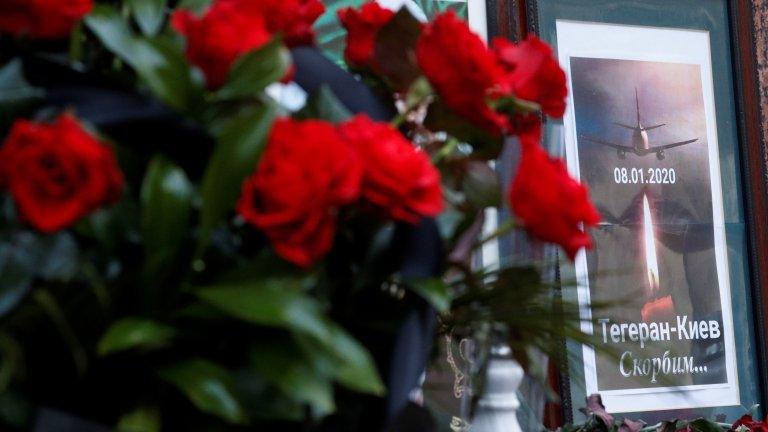
- Published11 January 2020
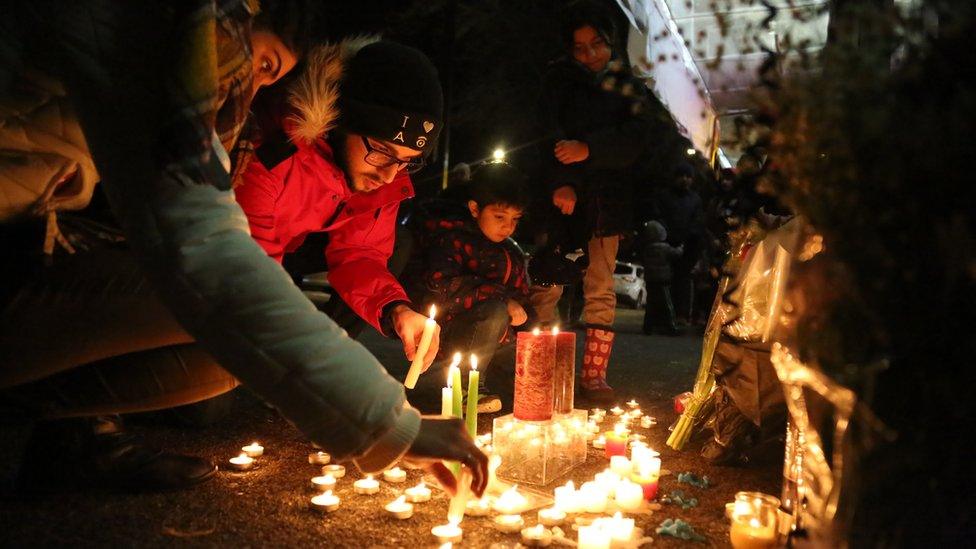
- Published17 January 2020
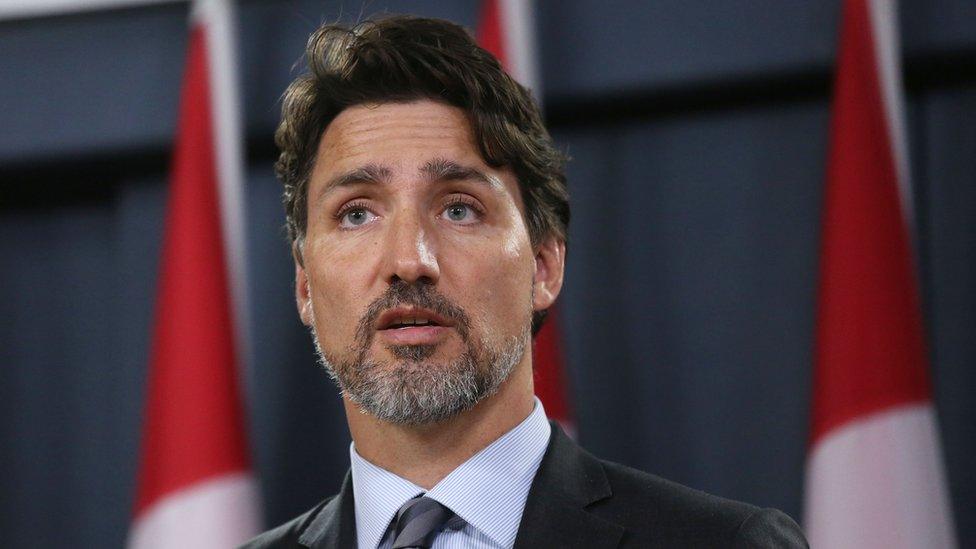
- Published17 March 2021
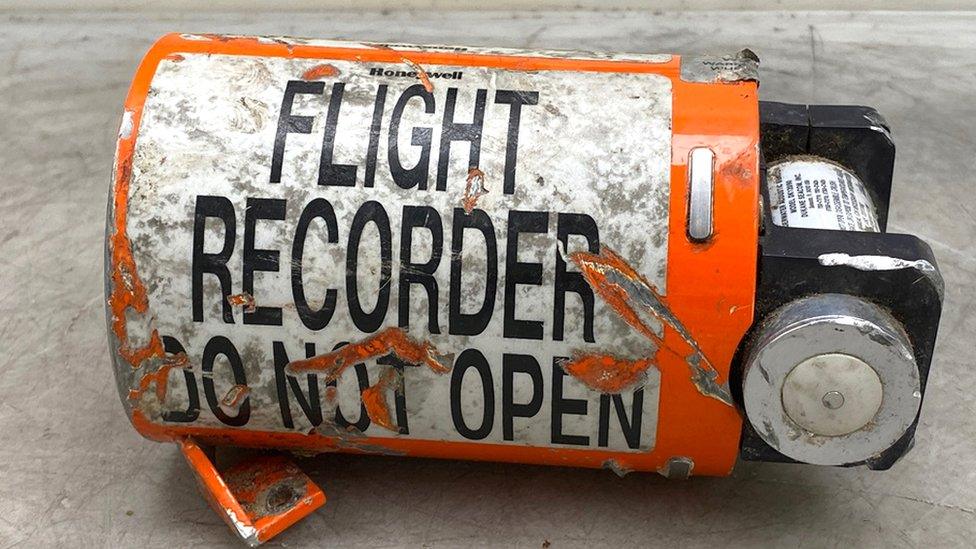
- Published9 January 2020
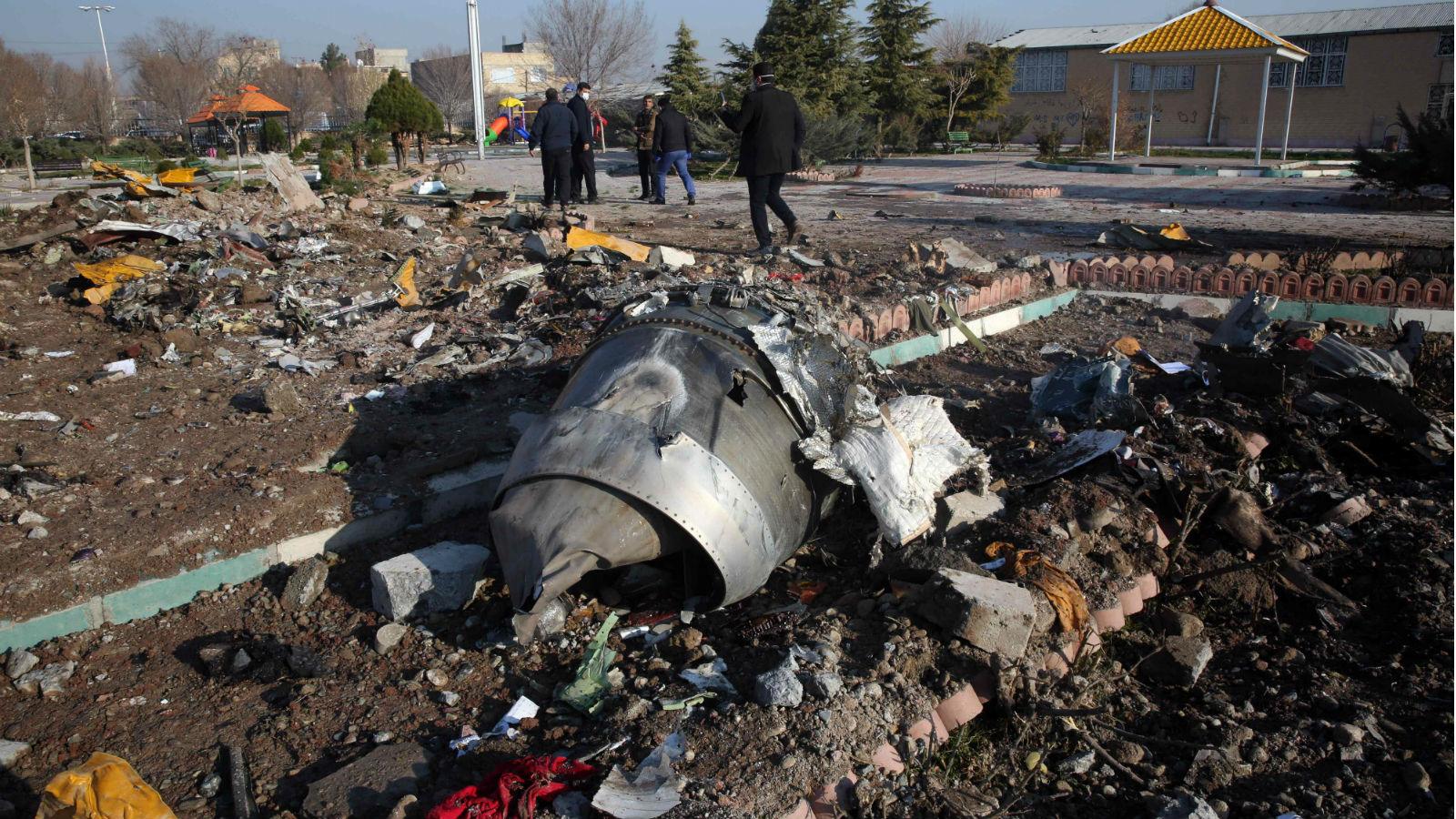
- Published9 January 2020
